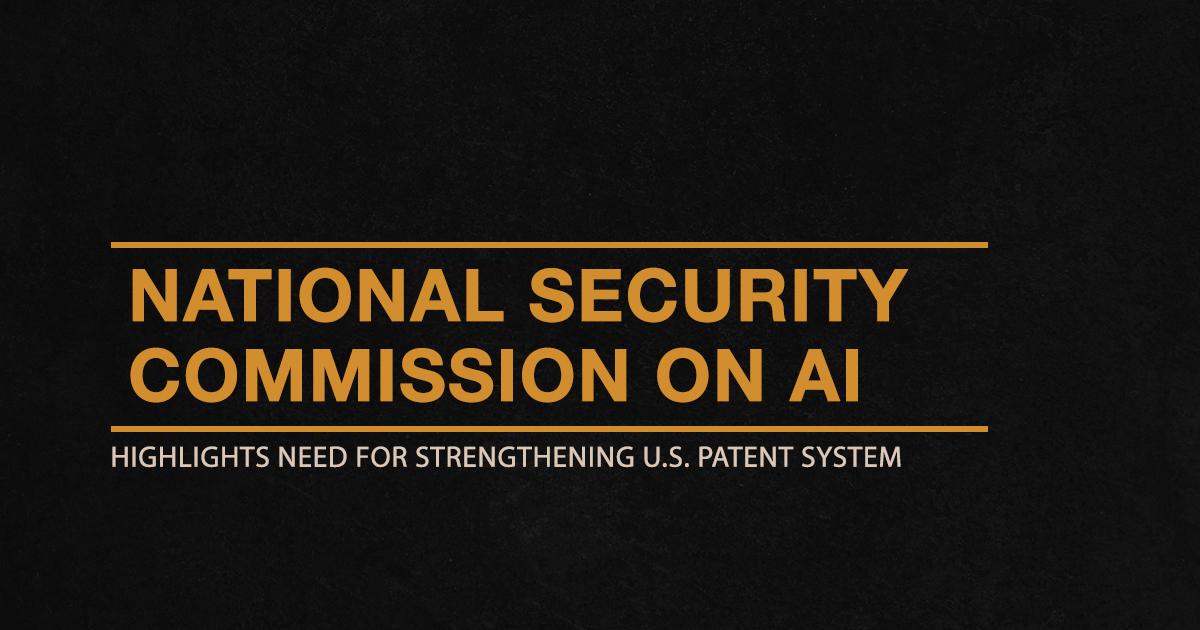National Security Commission on AI Report Highlights Need for Strengthening U.S. Patent System

March 24, 2021
The National Security Commission on Artificial Intelligence (NSCAI) – a congressionally mandated, bipartisan committee, comprised of technologists, academic leaders, business executives and national security professionals – was created in 2018 “to consider the methods and means necessary to advance the development of artificial intelligence, machine learning, and associated technologies to comprehensively address the national security and defense needs of the United States.” The Commission, co-chaired by former Google CEO Eric Schmidt, submitted its final report to the President and Congress earlier this month.
Strikingly, the report finds that weaknesses in the U.S. patent system, particularly around issues of what is eligible for patenting, are undermining U.S. leadership in AI and other technologies critical to our national security. It states:
“The United States lacks the comprehensive IP policies it needs for the AI era and is hindered by legal uncertainties in current U.S. patent eligibility and patentability doctrine. The U.S. government needs a plan to reform IP policies and regimes in ways that are designed to further national security priorities.”The report further concludes that China, our strongest competitor in the AI space, is effectively using patents and IP policy to catch up with the U.S. in the development of AI and other critical technologies. It states:
“China is both leveraging and exploiting intellectual property (IP) policies as a critical tool within its national strategies for emerging technologies… The United States has failed to similarly recognize the importance of IP in securing its own national security, economic interests, and technology competitiveness…”
“China is poised to ‘fill the void’ left by weakened U.S. IP protections, particularly for patents, as the U.S. has lost its comparative advantage in securing stable and effective property rights in new technological innovation.”It is made clear in the report that without substantive IP reform and the strengthening of U.S. patent rights, the U.S. will lose its technological leadership position within a few short years. We urge Congress to pay close attention to the warnings provided in the NSCAI report and undertake the critical changes needed in patent policy to keep America secure and globally competitive. To learn more about the need for strong U.S. patent rights, visit SavetheInventor.com.
